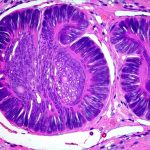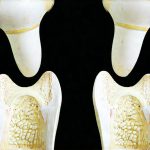Digestive health is central to overall well-being, yet issues can often remain hidden until they significantly impact daily life. A wide range of diagnostic tests exists to help pinpoint the source of digestive discomfort, from simple stool analyses to more complex endoscopic procedures. Understanding what these tests measure and how to interpret the results empowers individuals to actively participate in their healthcare journey and make informed decisions with their physicians. This article will focus on interpreting common digestive test results, providing a comprehensive guide to understanding your diagnosis and treatment options.
Decoding Your Digestive Health: A Guide to Test Results
Digestive testing isn’t always straightforward; the sheer variety of tests available can be overwhelming for patients. These tests are designed to evaluate different aspects of the digestive system, including the esophagus, stomach, intestines, liver, gallbladder, pancreas, and colon. Tests may assess functionality, detect inflammation, identify infections, or screen for structural abnormalities. A proper understanding of these results requires collaboration with your healthcare provider, but having a foundational knowledge beforehand will allow you to ask informed questions and engage in meaningful discussions about your care plan. It’s important to remember that test results are just one piece of the puzzle – they must be considered alongside your symptoms, medical history, and physical examination findings.
Why Are Digestive Tests Done?
Digestive tests are performed for a multitude of reasons, often stemming from experiencing persistent or concerning gastrointestinal (GI) symptoms. These symptoms can range in severity and presentation, making accurate diagnosis crucial. Common conditions that require digestive testing include identifying the cause of abdominal pain, chronic diarrhea or constipation, unexplained weight loss, nausea and vomiting, bloating, heartburn, or blood in the stool. Furthermore, tests are vital for screening purposes, such as colonoscopies to detect polyps or early signs of colorectal cancer. Testing can also help diagnose specific diseases like inflammatory bowel disease (IBD) – encompassing Crohn’s disease and ulcerative colitis – celiac disease, and infections like Helicobacter pylori. In essence, these tests provide crucial information to guide treatment and improve patient outcomes.
How to Prepare for Digestive Tests
Preparation varies significantly depending on the specific test being performed, but generally involves some degree of dietary modification or bowel preparation. It is vital to strictly adhere to your doctor’s instructions; inadequate preparation can lead to inaccurate results and the need to repeat the procedure. For example, a colonoscopy requires a thorough bowel cleanse using strong laxatives for several days prior to the exam, while an endoscopy typically necessitates fasting for 6-8 hours beforehand. Blood tests often require a period of fasting or avoiding certain medications. Your doctor will provide detailed written instructions outlining specific preparation requirements, including dietary restrictions, medication adjustments, and bowel preparation protocols. Don’t hesitate to ask questions if anything is unclear – proper preparation is essential for obtaining reliable results.
What to Expect During the Test
The experience during a digestive test also differs based on the procedure itself. Endoscopies and colonoscopies often involve mild sedation to ensure patient comfort, though some level of discomfort or bloating might still be experienced. Stool tests are generally non-invasive, requiring only collection of a small sample. Blood tests involve a simple needle prick and minimal discomfort. Imaging tests like CT scans or MRIs are typically painless but require lying still for an extended period. Throughout the test, healthcare professionals will monitor your vital signs and address any concerns you may have. Communication with the medical team is crucial to ensure a comfortable and successful procedure.
Understanding Your Results: A Deeper Dive
Interpreting digestive test results can be complex, as normal ranges vary between laboratories and individual patient factors play a role. Blood tests might reveal elevated levels of liver enzymes indicating liver damage, or abnormal markers suggesting inflammation in the intestines. Stool tests may identify the presence of bacteria, parasites, or blood, pointing to infection or gastrointestinal bleeding. Endoscopic procedures like colonoscopies allow direct visualization of the digestive tract and can detect polyps, ulcers, or signs of inflammation. Biopsies taken during these procedures provide tissue samples for microscopic examination, helping diagnose conditions like IBD or cancer. A key aspect of interpretation is understanding that a single abnormal result doesn’t necessarily equate to a diagnosis – it often requires considering multiple test results and clinical findings.
Risks Associated with Digestive Tests
Like any medical procedure, digestive tests carry potential risks, though most are relatively minor. Endoscopies and colonoscopies have a small risk of bleeding, perforation (a tear in the intestinal wall), or infection. Bowel preparation for colonoscopies can lead to dehydration and electrolyte imbalances. Blood tests may cause mild bruising at the injection site. Imaging tests involving radiation carry a slight increased risk of cancer over time, but this is generally outweighed by the benefits of diagnosis. Your doctor will discuss these risks with you before the test and take appropriate precautions to minimize them. It’s important to report any concerning symptoms after the procedure, such as severe abdominal pain, fever, or bleeding.
Final Thoughts: Navigating Your Digestive Health Journey
Digestive tests are powerful tools for understanding and addressing gastrointestinal issues. While interpreting results can seem daunting, remember that your healthcare provider is your best resource. Don’t hesitate to ask questions about your test results, discuss any concerns you have, and actively participate in developing a treatment plan tailored to your specific needs. Understanding the rationale behind each test, preparing adequately, and knowing what to expect during and after the procedure will empower you to take control of your digestive health and achieve optimal well-being. It’s essential to view testing not as an endpoint, but rather as a crucial step towards a diagnosis and effective management of any underlying conditions.
Have you recently undergone digestive testing? Share your experiences or questions in the comments below – let’s build a supportive community for those navigating similar health journeys!


















